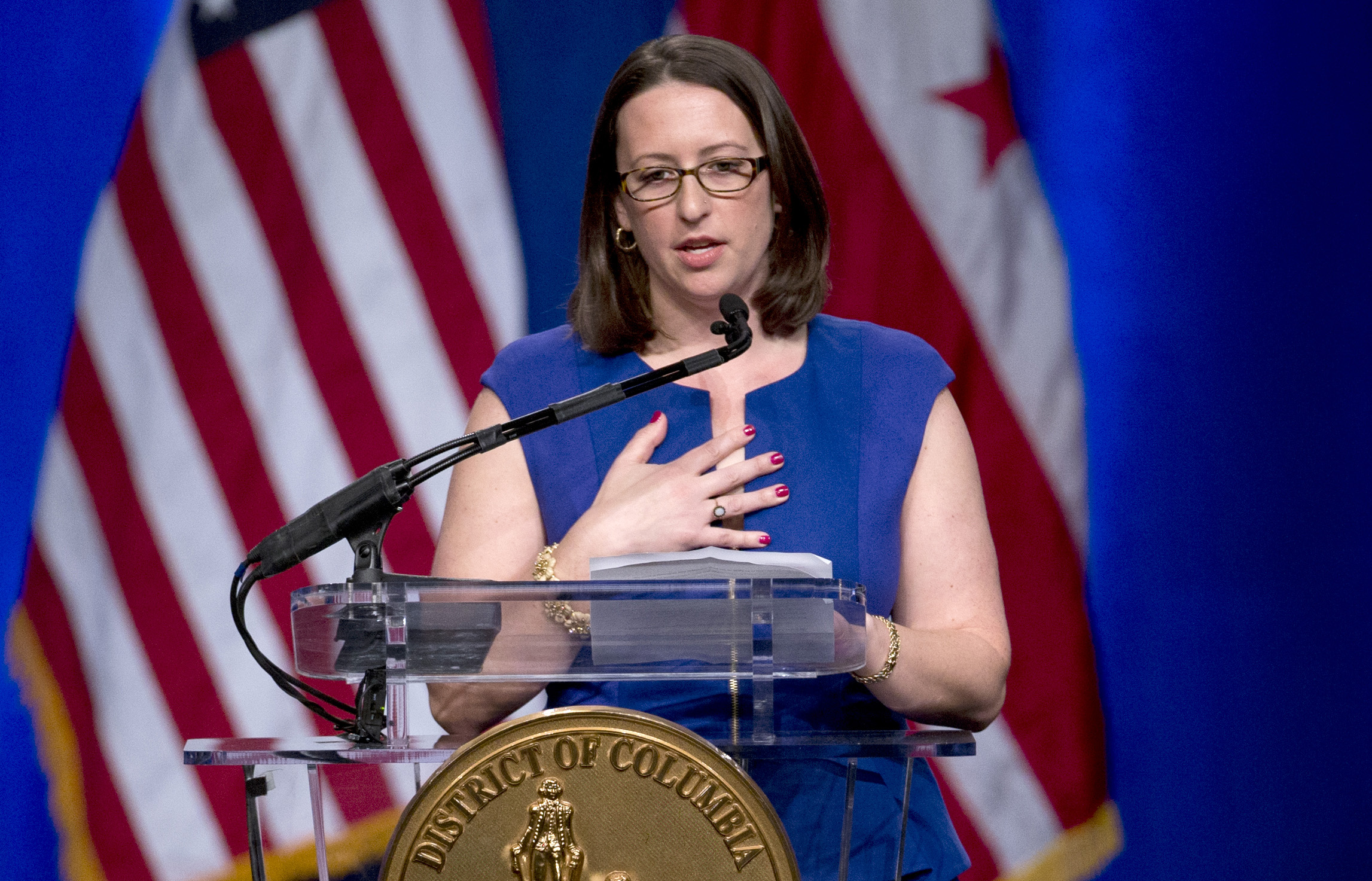After Roe, some questions and concern over future abortion access in D.C.
The district has limited autonomy under a Congress that could soon be GOP-led.
Roe v. Wade's overturning in June returned the regulation -- or banning -- of abortion to individual states and at least 15 states have since ceased nearly all abortion services.
However, there are some questions about decidedly non-state Washington, D.C.
As a federal district, it operates under the 1973 Home Rule Act, which provides certain authority to the D.C. mayor and 13 elected councilmembers but reserves for Congress the ultimate power to govern.
D.C. has some of the least restrictive abortion laws in the country: It is legal for all stages of pregnancy. However, because of the district's unique status under Congress, abortion access has other caveats. Medicaid funding, for example, cannot be used as it can in states.
With the Republican Party hoping to retake the House and Senate in November -- a likely outcome at least in the House, according to FiveThirtyEight -- some conservative lawmakers have openly mused about trying to repeal the district's limited autonomy and abortion access along with it.
In past attempts to restrict abortions in the district, local councilmembers could rely on Roe as a legal barricade. The post-Roe future is more uncertain.
The most outspoken opponent of home rule is Rep. Andrew Clyde, R-Ga., who said in February he planned to introduce legislation to effectively dissolve what he deemed a "failed experiment."
"My forthcoming legislation to repeal D.C.'s Home Rule Act will follow and uphold the Constitution, period," Clyde told Politico in June, after the Supreme Court reversed Roe. "Despite the Left's lie that women have a constitutional right to abortion, the Constitution clearly secures an unalienable right to live — but it does not provide a right to abortion."
D.C. Councilmember Brianne Nadeau said the proposals by Clyde and other conservatives called for heightened caution from local officials.

"Whenever a Republican member of Congress mentions [ending home rule], I think we have to be prepared to protect our residents' rights from being curtailed," Nadeau told ABC News.
On May 6, in the wake of the leak of a draft of the Supreme Court's majority opinion striking down Roe, Nadeau introduced the Humans Rights Sanctuary Amendment Act of 2022. She called it a needed protection. If passed, it would prevent the district from cooperating in out-of-state investigations with the goal to impose criminal or civil liability for abortion, contraception use and other protected conduct.
"My bill also anticipates further action by the Supreme Court that might prevent people from upholding their marriage or receiving gender-affirming care," Nadeau said. "If there's a same-sex couple or a trans child who needs lifesaving health care, I want to make sure that D.C. has already contemplated that future need for proper protection."
Nadeau's proposal also includes a countermeasure -- a private right of action -- against state laws that empower plaintiffs to sue people they suspect are connected to illegal abortions, such as the novel Texas law passed in 2021.
Nadeau's bill is modeled on Connecticut's Reproductive Freedom Defense Act, signed into law in May, which shields abortion seekers from out-of-state scrutiny and state clinicians from lawsuits from out-of-state plaintiffs.
The D.C. Council held a public hearing related to reproductive health care on July 14, in which Kate Vlach, the policy director for the Office of the D.C. Attorney General, said district clinicians were "uncertain if they might face criminal prosecution for providing services" to out-of-state abortion seekers.
Meanwhile, the district's non-voting delegate to Congress, Eleanor Holmes Norton, has called on Congress to reconsider statehood and codify abortion into federal law -- both dim prospects given GOP opposition, Democrats' narrow majorities and moderates' support for the Senate filibuster.

At a House Oversight Committee hearing on July 13, Norton urged: "Statehood is the best way for D.C. to protect abortion access for its residents."
A repeal of the decades-old home rule or a crackdown on D.C.'s abortion access are also slim in the short term: Clyde's plan has not risen to leadership level. Kentucky Republican Rep. James Comer, the ranking member of the House Oversight Committee, told Axios last month: "There have been no discussions committee-wide on this. This is an Andrew Clyde project that he feels very passionate about."
D.C. Councilmember Nadeau told ABC News there were larger challenges to removing the area's autonomy.
"It's not that simple to take over a district that has had a local government for more than 40 years, and then have no other plan for it," she argued. "I think this difficulty will be a hard deterrent [for the Republican Party] to overcome."




